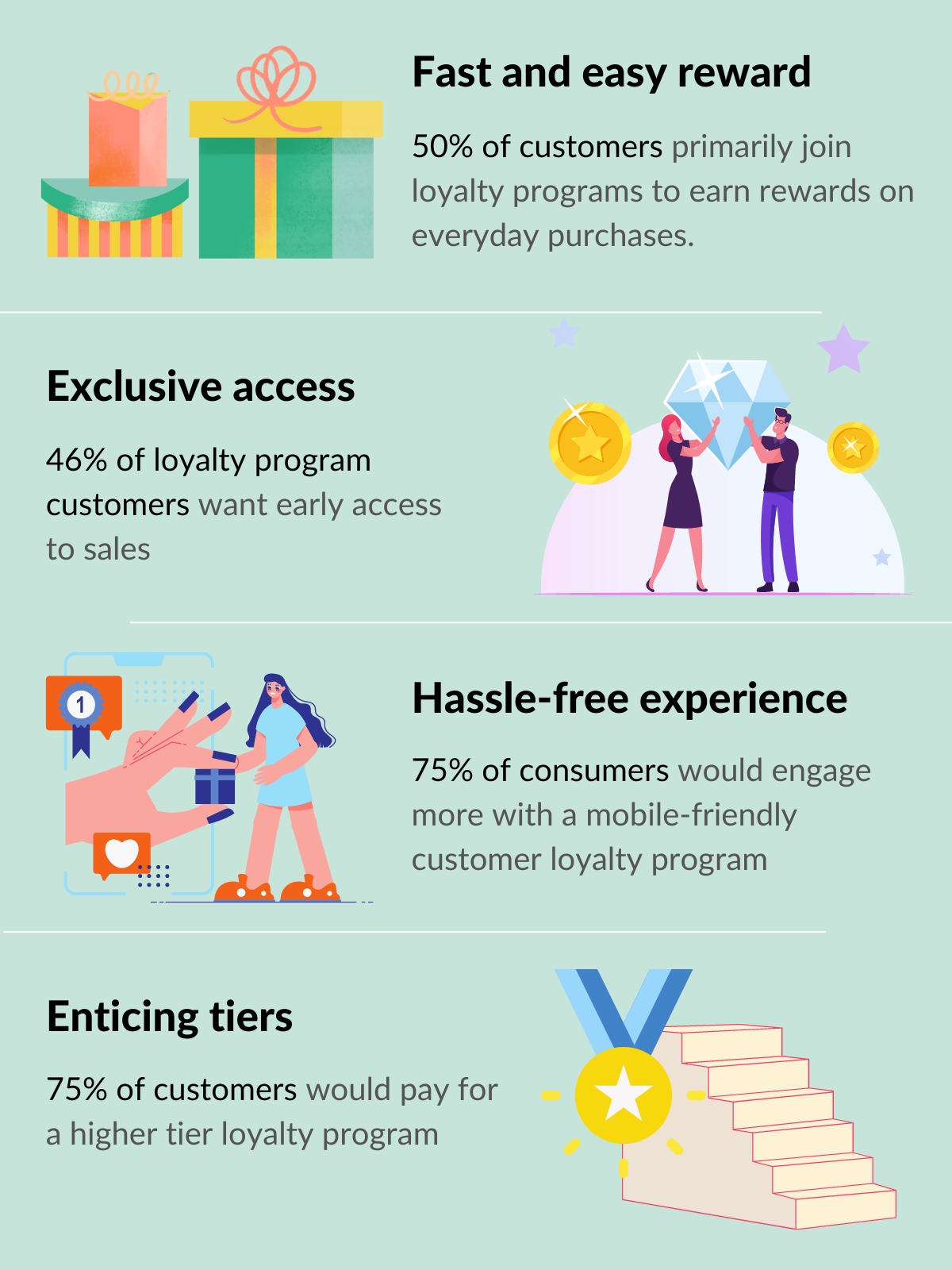BFN Lab: Insights and Innovations
Explore the latest trends and insights in technology, science, and innovation at BFN Lab.
Join the Club: Why Exclusive Rewards Programs Are the New VIP Experience
Unlock the secrets of exclusive rewards programs and discover why they're the ultimate VIP experience—join the club today!
Unlocking the Benefits: How Exclusive Rewards Programs Enhance Your Experience
In today’s competitive market, exclusive rewards programs have become a game-changer for businesses aiming to enhance customer loyalty and satisfaction. These programs offer tailored benefits that cater specifically to loyal customers, creating a sense of value and belonging. From discounts on future purchases to early access to sales, the incentives are designed to make customers feel appreciated. Moreover, many programs incorporate tiered structures, where customers can unlock more significant rewards as they engage more with the brand, thus driving ongoing interactions and boosting retention rates.
The advantages of exclusive rewards programs extend beyond immediate financial benefits. Customers often experience a heightened level of engagement with the brand, as they are motivated to explore more products and services to maximize their rewards. According to recent studies, participants in such programs report a stronger emotional connection to brands they feel rewarded by, leading to increased word-of-mouth referrals and positive online reviews. Ultimately, these programs create a win-win situation: customers enjoy enhanced experiences, while businesses reap the rewards of loyalty and advocacy.

Counter-Strike is a popular multiplayer first-person shooter game where teams of terrorists and counter-terrorists compete to achieve various objectives. Players often strategize and collaborate closely to secure victories, making the gameplay both engaging and dynamic. If you're interested in gaming promotions, check out the stake promo code to enhance your gaming experience.
The Rise of Membership Magic: Why Everyone Wants in on Exclusive Rewards
The concept of membership programs has seen a significant rise in popularity over recent years, as brands across various industries harness the power of exclusive rewards to attract and retain customers. With the promise of special perks, reduced prices, and unique experiences, consumers are increasingly motivated to join these programs. Membership Magic taps into the psychology of exclusivity, empowering members with a sense of belonging that goes beyond mere consumerism. This shift not only enhances customer loyalty but also drives repeat engagement, as members feel valued and appreciated by the brands they support.
Moreover, the demand for exclusive rewards has transformed how businesses approach customer retention strategies. Organizations are now implementing tiered membership systems, where rewards scale with customer engagement, effectively incentivizing customers to deepen their loyalty. Companies like Amazon and Nike have pioneered this trend, offering members unique access to sales, products, and experiences that non-members can only dream of. As the competition heats up, it's clear that membership magic is not just a passing trend, but a foundational element of modern marketing that is here to stay.
Are Exclusive Rewards Programs Worth It? A Deep Dive into Membership Benefits
When considering whether exclusive rewards programs are worth the investment, it's essential to evaluate the range of membership benefits they offer. Many programs provide an array of perks, including discounts on future purchases, early access to sales, and special promotions tailored to members. For instance, members might receive points for every dollar spent, which can eventually be redeemed for free merchandise or services. Moreover, some programs offer tiered benefits, where increased spending unlocks greater rewards, enhancing the overall value for dedicated customers.
However, potential members should weigh these benefits against any associated fees. It’s crucial to assess whether the rewards offered justify the costs involved. Exclusive rewards programs may include hidden charges or require minimum spending levels that can diminish their attractiveness. To make an informed decision, consumers should consider their shopping habits and evaluate the likelihood of attaining the rewards promised. Overall, while many shoppers find value in such programs, others might discover that the commitment doesn’t align with their purchasing patterns.